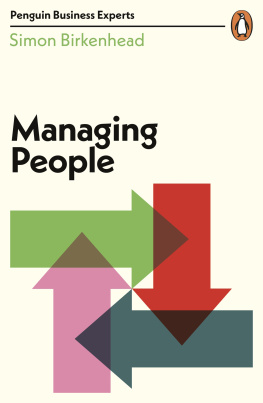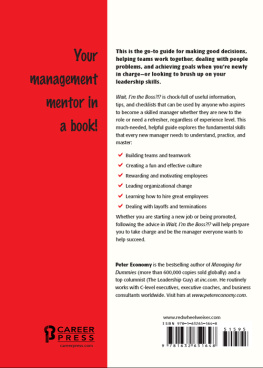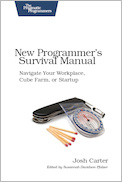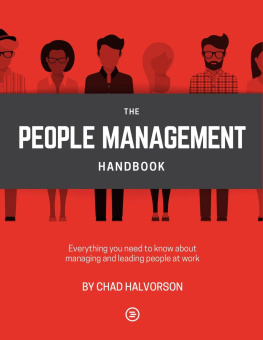


Contents
Answer the questions and work out your score, then read the guidance points.
How do you feel about your new role?
a) Terrified!
b) Excited I feel ready for my new role.
c) Very confident; Ive waited a long time for this.
Have you made any decisions about your management style?
a) I dont plan on acting any differently.
b) Ill be friendly and approachable.
c) Ill treat colleagues very differently as they will be working for me, not with me.
How do you feel about managing people older than you?
a) I worry about my lack of experience.
b) I dont see that age is an issue.
c) Its not a problem.
Be truthful! Out of 10, how do you rate your listening skills?
a) 46
b) 710
c) 13
How often do you say thank you?
a) Too much!
b) Regularly.
c) Not very often.
What is your view on conflict?
a) I avoid it if at all possible.
b) Sometimes its unavoidable.
c) I dont have a problem with it!
Which of the below is closest to your style of communication?
a) Passive.
b) Assertive.
c) Aggressive.
How do you view delegation?
a) I see it as laziness. If a job comes to you, you should deal with it yourself.
b) An important process for developing both yourself and your staff.
c) Very handy if you dont want to do something, pass it on!
How do you feel about your managers?
a) I worry that they dont think much of me.
b) I respect their experience. Were all on the same team.
c) I dont think much of them, so try to avoid them and get on with my job.
a=1, b=2, c=3.
Now add up your scores.
914: Now youve landed a managerial role its important to build up your confidence, reminding yourself that your company has chosen to promote you. If they believe in you theres no reason why you shouldnt too! Read will help you manage your personal workload.
1521: You clearly have a balanced approach to your new role, but dont underestimate the change this will cause in your working relationships. Remember to keep a professional distance..
2227: Remember that overconfidence can be a problem too! You are in danger of damaging relationships through your perceived arrogance. Listening and bonding are very important skills for managers read for advice on positive management.
Whatever your score, remember that as your role grows so should your contacts list. will help you build a network of mutually valuable contacts.
Settling into your new job
Congratulations! Your promotion campaign has been successful and youre now a manager.
Youre likely to be responsible for managing a team of up to 15 people, either in a company you already work for, or in a new organization. This is obviously very exciting for you, though you may feel a bit daunted at the prospect, especially if you were previously a member of the team you will now be managing.
However, provided you follow a few basic rules, there is no reason why such fears cant easily be overcome, and your new role will give you excellent scope to stretch your wings and fulfil your potential. This chapter will give you these basic rules and help to smooth the path forwards into this new phase of your working life.
Step one: Think about some key questions
Im worried I might not be up to the job. How can I overcome my nerves?
Its only natural to have some feelings along these lines most people do when faced with a new challenge. Try to keep your worries under control, though, as a crisis of confidence may affect your chance of success. Keep positive and remind yourself of your skills and competence to do the job after all, the company has recognized them, otherwise you wouldnt have been offered the role! Look after your health, too: make sure you get plenty of sleep and exercise, so you feel fighting fit and ready to take on anything.
Is it likely that my new job will affect my home life?
Almost certainly, yes. Moving into any new job can be stressful, and even more so when new or extra levels of responsibility are involved. The trick is to make sure youre prepared for it, and face the fact that your life may be more demanding than ever before. Talk this over with your family and friends at an early stage; it will be a huge help if they are ready to lend their support while you get to grips with your new role. Also, keep home distractions to a minimum as youre settling in so that you can focus.
Will I need to change my persona at work?
No, not essentially, but you may need to adjust your attitude and the way you think about your job. A lot of management is about standing back from the detail and seeing the big picture of what is happening so that you can make strategic decisions about how to act. Rather than getting involved in the nitty-gritty of individual tasks (as you may have done as a team member), try to take an objective overview. If you can learn to see the wood for the trees, youll naturally behave in a way that suits the circumstances.
Step two: Research and plan your new job
First things first: if youre moving to a new company to take up your job, find out everything possible about it the department or section youll be in, the job itself, and anything else you can think of.
If youre moving up the ranks at your current place of work, youll know much of this already, but, whatever the situation, dont prejudge what youre going to find and dont be bound by what youve done before or how any of your previous employers operated.
From all this information, try to form at least a tentative plan in advance its much harder to do this once youre in the post. For example, what do you want to achieve? How might you need to develop yourself to match the new demands?
Think honestly about your strengths and weaknesses: how can you use your qualities and experience to their best advantage and compensate for your limitations?
TOP TIP
If possible, you could make some discreet enquiries about your predecessor: why they left, what management style they preferred, how people responded to that, what may need to be changed, and so on.
Again, if youre not moving companies you may know some of this already, but try to take a more balanced view of things and try to see things from the other persons perspective, too.
Step three: Engage with your team
Once you start your new job, make this your first priority. You need to know:
the purpose of your department, team or unit, and its goals;
the work being done;
the current state of play;
any customer expectations that need to be met.
Get all of your team members together as soon as possible and introduce yourself, then arrange meetings with each of them individually. Keep these meetings as friendly and informal as you can, but allow a generous amount of time and plan some kind of framework for the discussion. Listen carefully to what people have to say, and obtain information about them as individuals. Most importantly, ask each person the question: what should I do or not do to help you perform your job effectively?
Next page


















